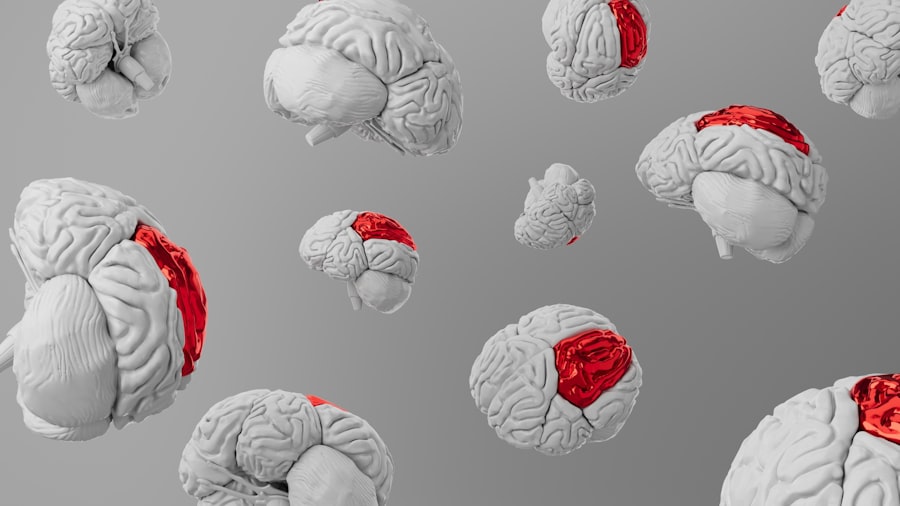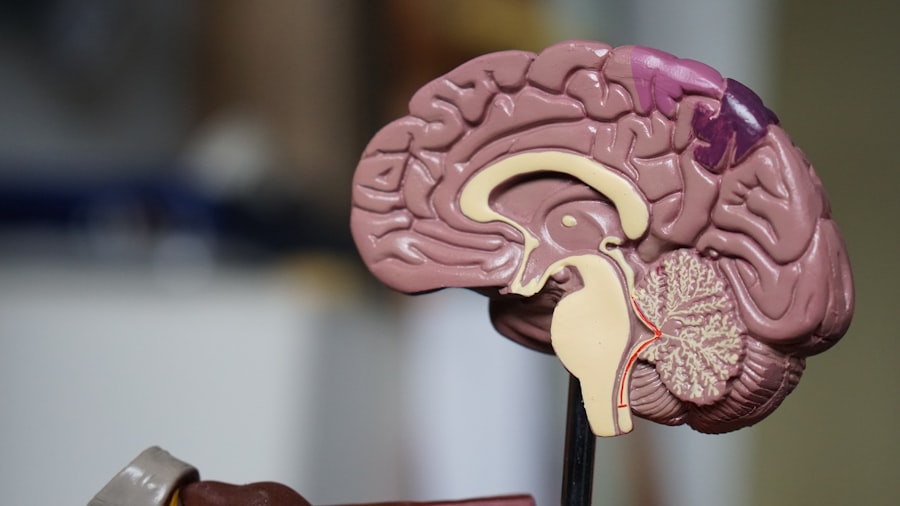Your brain is an intricate organ that requires proper nutrition to function optimally.
The connection between nutrition and brain health is profound; what you eat can significantly influence your mood, focus, and even the risk of developing neurodegenerative diseases.
Understanding the impact of various food types on your brain can empower you to make informed dietary choices that promote cognitive longevity. In recent years, research has increasingly highlighted the importance of nutrition in maintaining brain health. Nutrients such as omega-3 fatty acids, antioxidants, vitamins, and minerals play crucial roles in brain function.
Conversely, certain foods can have detrimental effects on your cognitive abilities and mental health. By being aware of the types of foods that can harm your brain, you can take proactive steps to enhance your diet and, consequently, your mental acuity. This article will explore various food categories that may negatively impact your brain health, providing you with insights to help you make better dietary choices.
Key Takeaways
- Processed and refined foods can negatively impact brain health and should be limited in the diet.
- Sugary foods and beverages can lead to inflammation and oxidative stress in the brain, affecting cognitive function.
- Trans fats and hydrogenated oils should be avoided as they can contribute to cognitive decline and increase the risk of dementia.
- High sodium foods can lead to high blood pressure and negatively impact brain health, so it’s important to limit intake.
- Artificial sweeteners and additives may have negative effects on brain health and should be consumed in moderation.
Processed and Refined Foods
When you think about processed and refined foods, you might picture convenience and quick meals. However, these foods often come at a cost to your brain health. Processed foods are typically high in unhealthy fats, sugars, and additives while lacking essential nutrients.
They are designed for shelf stability and mass production rather than nutritional value. Regular consumption of these foods can lead to inflammation in the body, which has been linked to cognitive decline and various neurological disorders. Moreover, refined carbohydrates found in many processed foods can cause spikes in blood sugar levels.
These fluctuations can lead to mood swings, fatigue, and difficulty concentrating. When you consume refined grains instead of whole grains, you miss out on vital nutrients like fiber and B vitamins that are essential for brain function. By reducing your intake of processed and refined foods, you can help stabilize your energy levels and support your cognitive health.
Sugary Foods and Beverages

You may find sugary foods and beverages tempting due to their immediate gratification; however, their long-term effects on your brain can be quite harmful.
When you consume excessive amounts of sugar, it can lead to inflammation and oxidative stress in the brain, which may impair cognitive function over time.
Additionally, sugary drinks like sodas and energy drinks provide empty calories without any nutritional benefits. These beverages can contribute to weight gain and metabolic issues, further exacerbating the risk of cognitive decline. Instead of reaching for that sugary snack or drink, consider opting for natural sources of sweetness like fruits.
Not only do they satisfy your sweet tooth, but they also provide essential vitamins and antioxidants that support brain health.
Trans Fats and Hydrogenated Oils
| Country | Trans Fat Consumption (g/day) | Hydrogenated Oil Usage (kg/year) |
|---|---|---|
| United States | 1.3 | 2.5 |
| Canada | 0.8 | 1.9 |
| United Kingdom | 0.6 | 1.2 |
Trans fats are often found in processed snacks, baked goods, and margarine. These unhealthy fats are created through a process called hydrogenation, which makes oils more solid at room temperature. While they may enhance the texture and shelf life of certain products, trans fats have been shown to have detrimental effects on heart health and brain function.
Research indicates that a diet high in trans fats may lead to an increased risk of cognitive decline and memory loss. When you consume trans fats, they can disrupt the balance of healthy fats in your body, leading to inflammation and impaired neuronal function. This disruption can affect neurotransmitter activity, which is crucial for communication between brain cells.
To protect your brain health, it’s essential to read food labels carefully and avoid products containing partially hydrogenated oils. Instead, focus on incorporating healthy fats from sources like avocados, nuts, seeds, and fatty fish into your diet.
High Sodium Foods
High sodium foods are prevalent in many diets today, often found in processed meals, canned soups, and fast food items. While sodium is an essential mineral for bodily functions, excessive intake can lead to hypertension and other cardiovascular issues. Recent studies have also suggested a link between high sodium consumption and cognitive decline.
Elevated blood pressure can reduce blood flow to the brain over time, potentially leading to memory problems and other cognitive impairments. Reducing your sodium intake doesn’t mean sacrificing flavor; there are plenty of herbs and spices that can enhance the taste of your meals without the need for excessive salt. By preparing more meals at home using fresh ingredients, you can control the amount of sodium in your diet while also ensuring that you’re consuming nutrient-dense foods that support brain health.
Artificial Sweeteners and Additives

Artificial sweeteners may seem like a healthier alternative to sugar; however, their long-term effects on brain health are still being studied. Some research suggests that these sweeteners could alter gut microbiota or affect insulin sensitivity, both of which play a role in cognitive function. Additionally, certain additives found in processed foods have been linked to behavioral changes and mood disorders.
While it’s tempting to reach for low-calorie options laden with artificial sweeteners, it’s important to consider their potential impact on your overall health. Instead of relying on these substitutes, try using natural sweeteners like honey or maple syrup in moderation or simply enjoy the natural sweetness of fruits. By prioritizing whole foods over processed options filled with artificial ingredients, you can better support your brain health.
Alcohol
Alcohol consumption is another area where moderation is key for maintaining brain health. While some studies suggest that moderate alcohol intake may have certain cardiovascular benefits, excessive drinking can lead to significant cognitive decline over time. Chronic alcohol use has been linked to memory loss, impaired judgment, and an increased risk of developing neurodegenerative diseases such as Alzheimer’s.
If you choose to drink alcohol, it’s essential to do so mindfully. Limiting your intake to moderate levels—defined as up to one drink per day for women and up to two drinks per day for men—can help mitigate some of the risks associated with alcohol consumption. Additionally, consider incorporating alcohol-free days into your week to give your brain a break from its effects.
Red and Processed Meats
Red meat has long been a staple in many diets; however, recent research has raised concerns about its impact on brain health. High consumption of red and processed meats has been associated with an increased risk of cognitive decline and neurodegenerative diseases. These meats often contain high levels of saturated fats and preservatives that may contribute to inflammation in the body.
To promote better brain health, consider reducing your intake of red and processed meats while incorporating lean protein sources such as poultry, fish, legumes, and plant-based proteins into your meals. Not only will this shift benefit your cognitive function, but it will also contribute to overall physical health by providing essential nutrients without the negative effects associated with high meat consumption.
Fried and Fast Foods
Fried and fast foods are often convenient options for busy lifestyles; however, they come with a host of negative consequences for your brain health. These foods are typically high in unhealthy fats, sugars, and sodium while lacking essential nutrients that support cognitive function. Regular consumption of fried foods has been linked to an increased risk of developing conditions such as obesity and diabetes—both of which can negatively impact brain health.
Instead of relying on fast food for quick meals, consider preparing healthier alternatives at home using fresh ingredients. Baking or grilling instead of frying can significantly reduce unhealthy fat content while still providing delicious flavors. By making conscious choices about the foods you consume, you can protect your brain from the harmful effects associated with fried and fast food options.
High Mercury Fish
Fish is often touted as a healthy source of protein rich in omega-3 fatty acids; however, not all fish are created equal when it comes to mercury content. Certain species of fish—such as shark, swordfish, and king mackerel—are known to have high levels of mercury due to environmental pollution. Consuming fish high in mercury can lead to neurological damage over time.
To enjoy the benefits of fish while minimizing mercury exposure, opt for low-mercury options such as salmon, sardines, or trout. These fish not only provide essential omega-3 fatty acids that support brain health but also come with lower risks associated with mercury contamination. By making informed choices about the seafood you consume, you can enjoy its benefits without compromising your cognitive well-being.
Conclusion and Tips for Maintaining Brain Health through Diet
In conclusion, maintaining optimal brain health through diet is a multifaceted approach that requires awareness of what you consume daily. By avoiding processed foods, sugary snacks, trans fats, high sodium items, artificial additives, excessive alcohol consumption, red meats, fried foods, and high mercury fish, you can significantly reduce the risk of cognitive decline while enhancing overall mental well-being. To support your brain health effectively, focus on incorporating nutrient-dense foods into your diet.
Emphasize whole grains, fruits, vegetables, lean proteins, healthy fats from sources like nuts and avocados, and plenty of water for hydration. Regular physical activity combined with a balanced diet will further enhance cognitive function while promoting overall wellness. By making conscious dietary choices today, you are investing in a healthier future for your brain—one where clarity of thought and emotional stability thrive amidst life’s challenges.
Remember that small changes can lead to significant improvements over time; prioritize nourishing your mind as much as you do your body for a holistic approach to well-being.
When considering dietary choices for optimal brain health, it’s crucial to be aware of certain foods that might negatively impact cognitive function. For a comprehensive understanding of this topic, you might find it helpful to explore related articles that delve into the specifics of brain-boosting diets and foods to avoid. One such resource is available on Explore Senior Health, where you can find valuable insights and tips on maintaining a healthy diet for your brain. This site offers a wealth of information tailored to senior health, including dietary recommendations that support cognitive well-being.
WATCH THIS! 🧠 Stop Senior Moments: The Golden Spice That Reverses Memory Loss
FAQs
What are some foods to avoid for brain health?
Some foods to avoid for brain health include processed foods high in sugar and unhealthy fats, fried foods, and excessive alcohol.
Why should I avoid processed foods for brain health?
Processed foods are often high in added sugars, unhealthy fats, and artificial additives, which can contribute to inflammation and oxidative stress in the brain, negatively impacting cognitive function.
How does consuming fried foods affect brain health?
Fried foods are often high in unhealthy trans fats and can contribute to inflammation and impaired blood flow, which can negatively impact brain health and cognitive function.
What is the impact of excessive alcohol consumption on brain health?
Excessive alcohol consumption can lead to brain shrinkage, impaired cognitive function, and an increased risk of developing conditions such as dementia and Alzheimer’s disease.
Are there specific types of fats that should be avoided for brain health?
Unhealthy trans fats and excessive saturated fats, often found in processed and fried foods, should be avoided for brain health. Instead, focus on consuming healthy fats such as those found in avocados, nuts, and fatty fish.
